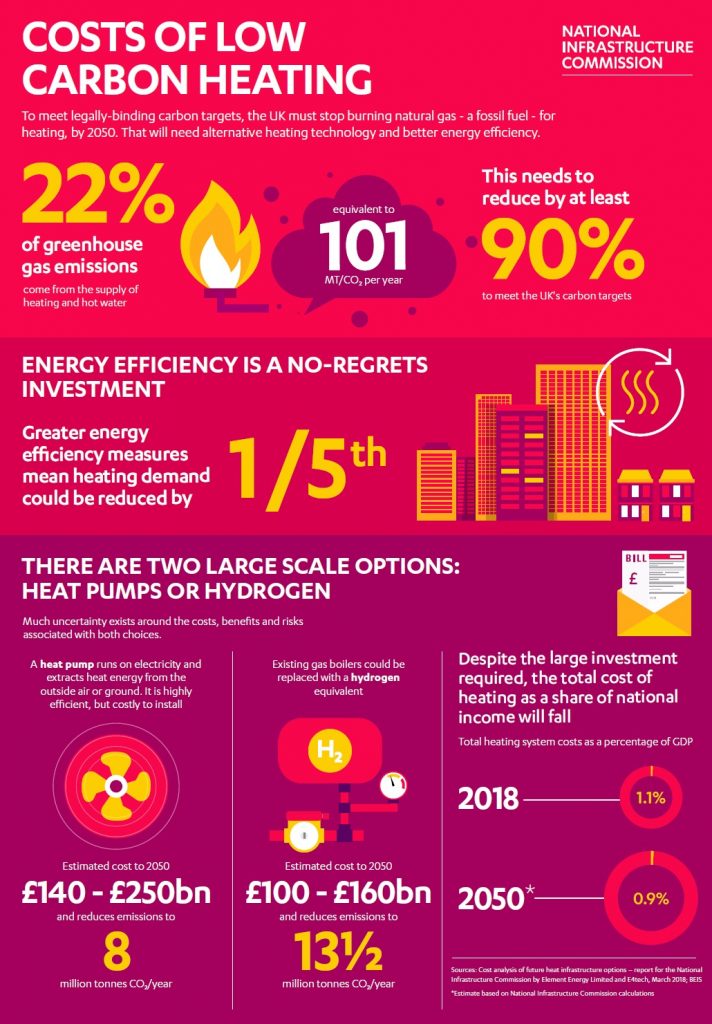Northern Gas Networks has welcomed the findings of a decarbonisation study published this week by the National Infrastructure Commission.
Repurposing the gas grid to safely carry low-carbon hydrogen at scale is the lowest cost solution for decarbonising heat, according to the research.
The study estimates that converting the gas distribution network to 100% hydrogen would cost around £100bn less than electrifying the heating system with heat pumps.
Building on the work of its pioneering 2016 H21 Leeds City Gate feasibility study, Northern Gas Networks is currently leading a £10.3 million collaborative innovation project in partnership with the UK gas distribution networks to deliver critical safety evidence around a 100% hydrogen gas network.
This is being timed to coincide with the Government’s own £25 million hydrogen programme investigating hydrogen for use in homes.
The Commission’s study also concludes that a joined-up approach to the decarbonisation of our energy infrastructure could save £55bn by 2050, as much as £2,000 for each household in Great Britain.
The NIC commissioned Element Energy & E4 Tech to carry out the study, and investigate the cost of decarbonising the UK’s heat infrastructure, including space-heating and hot water.
The final report, circulated to stakeholders for the first time this week, finds that an integrated approach to decarbonising UK energy infrastructure could deliver significant savings.
The NIC report comes as the Government continues to develop decarbonisation policies for heat and transport necessary for the UK to meet its legally binding carbon emissions targets under the Fourth and Fifth Carbon Budgets.
The Energy Networks Association believes that a Whole-System Approach, based on our energy networks using new smart technologies to work more closely together in an integrated way, can build on the strength of our existing energy network assets to deliver decarbonisation at lowest cost.
ENA has called for the Government to investigate what role that approach could have as part of the Clean Growth Strategy.
David Smith, CEO of ENA, says: “Britain’s energy network operators are committed to creating an efficient, smarter, cleaner energy system fit for our homes and businesses. Decarbonising heat is one of the greatest challenges facing our energy system, and ENA welcomes the independent National Infrastructure Commission’s contribution to the evidence base on future options. Our power, heat, transport and waste sectors are all interdependent, and so must be the solutions for their decarbonisation.
“The NIC figures suggest that a Whole-System Approach to decarbonisation, which involves planning how to use our energy network infrastructure in a more integrated way by using low carbon gases like hydrogen, could save £55bn to 2050 compared to an electricity only solution.”

To read the full report download:




